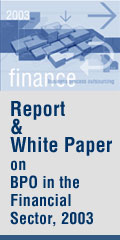|


|
US branded total card credit losses will peak at $55.6 billion in 2009
April 17, 2009: A new research report by TowerGroup predicts that US branded total card credit losses will peak at $55.6 billion in 2009 because the recessionary economic conditions are making it difficult for consumers to repay credit card debt. TowerGroup's Brian Riley points out that not all losses are the result of honest inability to pay, warning that intentional cardholder losses from abuse and fraud may cost the industry as much as $10 billion.
The report indicates that most credit loss will come from legitimate, stressed consumers who cannot manage to pay their debts because of a disruption to their employment, net worth or cash flow. However, issuers must be aware of three types of fraud: first-[1], second-[2] and third-party[3] payment card fraud, which are increasingly emerging in this down economy. Failing to detect fraudulent transactions forces card issuers to write-off the losses as bad debt, which they must account in their corporate income statements. The negative impact of fraud is staggering:
Although not all write-offs are linked to fraud, TowerGroup projects that aggregate US gross contractual write-offs will exceed 9 percent of credit card outstandings in 2009.
Major North American issuers estimate that first-party fraud and cardholders' credit abuse cause between 5 and 35 percent of their total bad debt write-off.
TowerGroup projects the payment card industry will face record losses in 2009 as Operational Credit Losses approach $60 billion.
"Any type of loss, whether it is legitimate or fraudulent, can harm a card issuer's bottom line," said Brian Riley, research director for bank cards at TowerGroup. "Card issuers that leverage technologies for greater business transparency will mitigate the risk of further harmful losses and improve the ability to address the differences between sincere customer delinquency and blatant fraud. Moreover, issuers thatact now to build in fraud controls using application screening and ongoing behavior monitoring will position their organizations for lower losses at present and faster recovery when the economy improves."
Common account-queuing technologies can help identify fraud, but human intervention is still essential to distinguish true delinquency from possible abuse. TowerGroup recommends using the following guidelines to build a sound fraud-detection platform:
Consider accounting tools that blend technologies to identify first-payment default or customers' changing behavior with operational strategies that scrutinize the reasons for delinquency.
Use human intervention to address customers before default, even at the first or second transactions to ensure that contact points are valid.
Most collection processing systems allow for conditional checks that compare recently billed balances to current balances; however, card issuers can leverage specialized groups to discern account abuse and find accounts in which balance is building up immediately.
Credit Card issuers need to change current business processes...
Click here
(This is press release of TowerGroup)
CLICK FOR SPECIAL SECTION ON GLOBAL FINANCIAL CRISIS
Credit Implications of U.S. Financial Stability Plan and Stimulus Act
Changing trends in credit asset management
Tough year ahead for Asian banks as recession spreads
Asset quality of Chinese banks under pressure as credit cycle turns
Negative outlook for UAE banking sector, says Moody's
Outlooks on most banking systems in Asia Pacific turns negative
Negative credit outlook for Pakistani banking system
Greater refinancing risk for Asia-Pacific borrowers
Government measures should stabilize global banking markets
Global banking industry to see more restructuring & consolidation
Indian Banking sector challenged by domestic, not global, factors
Subprime Crisis: A Special
CLICK FOR MORE FEATURES & STORIES

|
|
|



